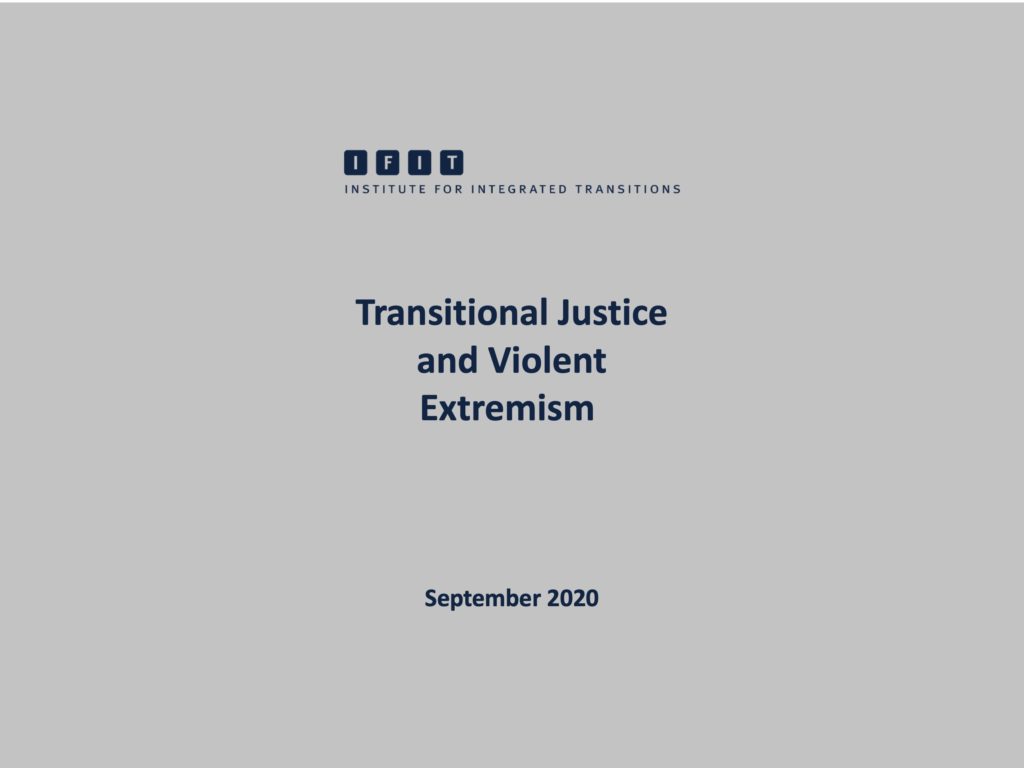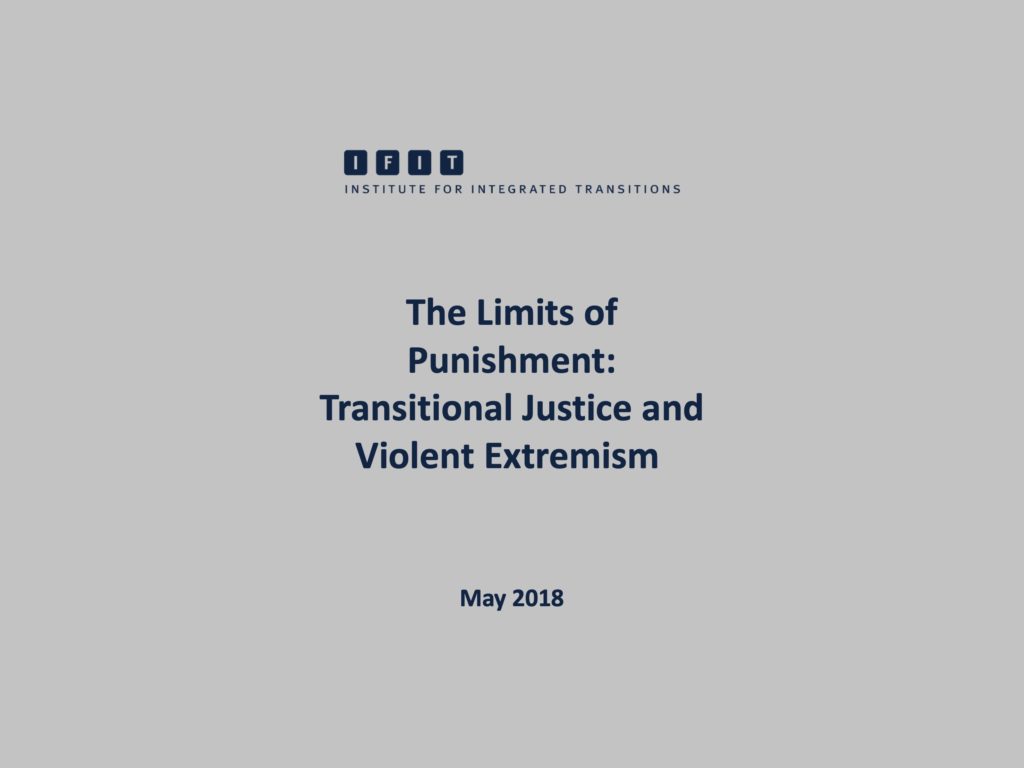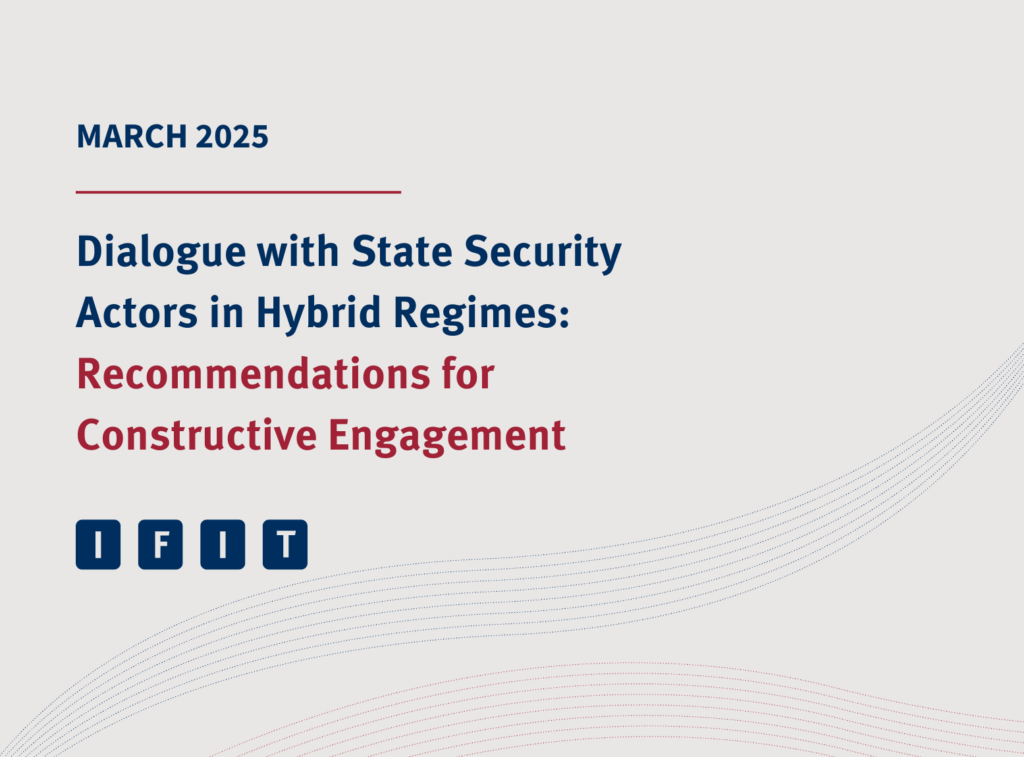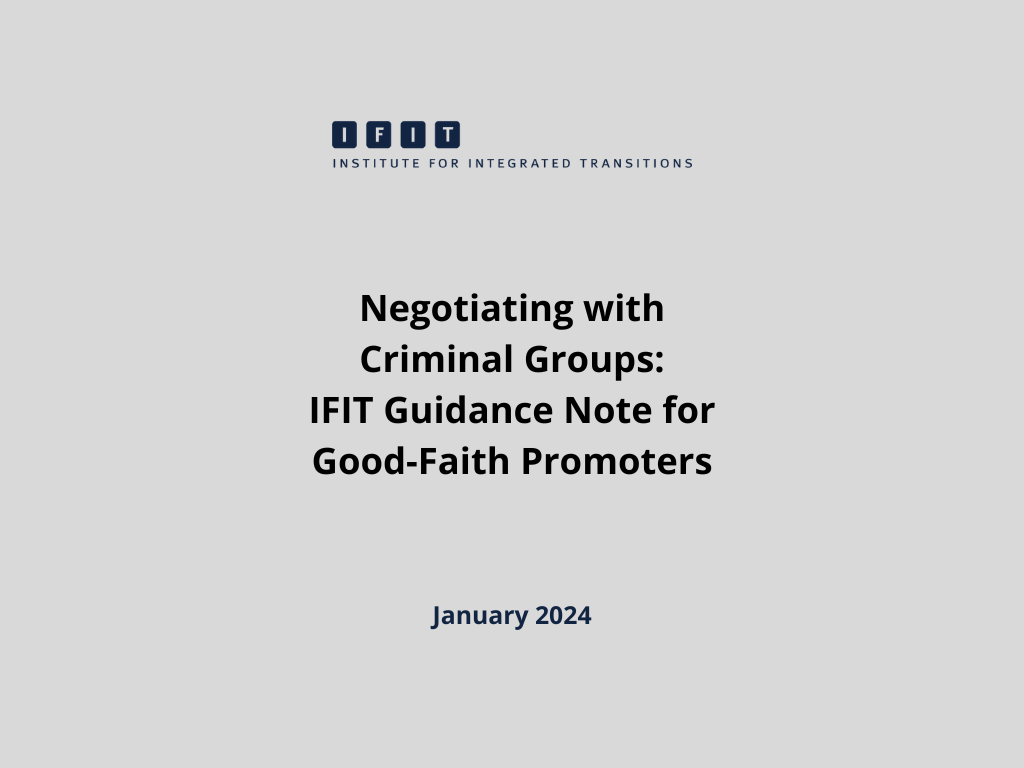Publication
/ Law and Peace
Nov 2020
Tax Amnesties as an Aid to Peace Deals and Political Settlements
This IFIT discussion paper is part of a larger project on the negotiation and treatment of economic crimes as part of a comprehensive conflict prevention and resolution strategy.
Political amnesty for atrocity crimes is a common expectation in negotiations with warlords, dictators, military commanders, paramilitary chiefs, rebel leaders and others, because it offers desirable legal security at the national level. Yet, political amnesty only goes so far. It does not provide the legal protection these figures often want for illicit assets or businesses they may control. As such, the prospect of a negotiated peace deal or political transition risks exposing themselves to personal disgrace, wealth destruction, jail time and an adverse impact on the lives of family members.
With such considerations in mind, this IFIT discussion paper explores the novel prospect of applying techniques and lessons derived from the global use of conditional tax amnesties to the context and end-goals of a peace negotiation. It examines the basic concept of tax amnesties and relevant trends and data from their global use, before proposing ways to apply tax amnesty techniques that might generate better conditions for inducing, reaching, and implementing negotiated peace deals and political settlements.
The DOI registration ID for this publication is: https://doi.org/10.5281/zenodo.10474332
You may also be interested in
This IFIT discussion paper is part of a larger project on the negotiation and treatment of economic crimes as part of a comprehensive conflict prevention and resolution strategy.
Political amnesty for atrocity crimes is a common expectation in negotiations with warlords, dictators, military commanders, paramilitary chiefs, rebel leaders and others, because it offers desirable legal security at the national level. Yet, political amnesty only goes so far. It does not provide the legal protection these figures often want for illicit assets or businesses they may control. As such, the prospect of a negotiated peace deal or political transition risks exposing themselves to personal disgrace, wealth destruction, jail time and an adverse impact on the lives of family members.
With such considerations in mind, this IFIT discussion paper explores the novel prospect of applying techniques and lessons derived from the global use of conditional tax amnesties to the context and end-goals of a peace negotiation. It examines the basic concept of tax amnesties and relevant trends and data from their global use, before proposing ways to apply tax amnesty techniques that might generate better conditions for inducing, reaching, and implementing negotiated peace deals and political settlements.
The DOI registration ID for this publication is: https://doi.org/10.5281/zenodo.10474332








